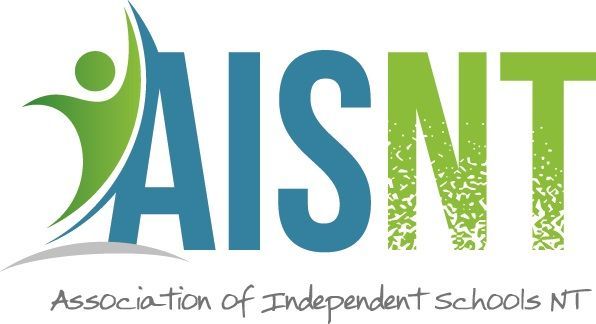Vital Middle Management (MM) Part 1
Capable, effective Middle Management is so important in creating a good school.
A Principal may appoint a worthy staff member to a position in MM eg. Head of Department, Head of House, based on their performance as a teacher. However not all good teachers are good leaders of staff even though they are terrific with a class. Making the right appointment is one of the Principal’s really important tasks as it will have a direct effect on the school. The Principal must ensure that an appointment is made carefully after thorough research, a well prepared interview and due consideration. Important characteristics to look for in an MM are:
Loyalty - it is no good having someone wanting to take a path different from the school’s stated direction no matter how good they are.
Leadership - will the MM be acceptable to the staff as a leader? Subject, school, students - is the MM enthusiastic about their subject, the school and the students?
- Knowledge - does the MM have a good knowledge of their subject?
- Administration - is the MM a capable administrator?
- Safety and Value - will the MM make staff feel safe and valued ?
- Empathy - does the MM have a capacity to show empathy?
- Criticism - can the MM constructively give criticism if necessary?
- Encouragement - is the MM an encouraging person?
- Active - will the MM do some management by “walking around”?
- Safety - will the MM take quick action on safety?
- Initiative - will the MM show initiative?
- Problem solver - is the MM a good problem solver?
- Cooperation - will the MM work cooperatively and constructively with the other MMs?
On appointment a new MM may have a vast job description to manage which covers all bases, but be impossible to achieve in the time allocated for the job. I confess that I have sometimes written such job descriptions, passed them on and when a new MM was having difficulty achieving everything in it I suddenly realised that it was impossible to achieve everything stated and it therefore flew in the face of my firmly held belief of staff practising a sensible work/ life balance.
On the other hand my early days of my own MM leadership were marked by very brief job descriptions which also failed to set parameters. One I received was “You are to be responsible for the discipline of the boys!” Perhaps a little brief!
While it may be likely that MMs relate to someone senior in the organisation of the school, I believe that as Principal you should maintain contact and interest in them and be willing to listen if they wish to talk to you as the Educational Leader of the school. If at all possible, I believe a Principal should do some teaching even if it is only a little. In small schools it is likely to be more than a little and while staffing in large schools may mean that it is not a timetabling imperative, it is still worthwhile. I expect all Principals in the NT have experienced that dreadful, sinking feeling when vigorous recruiting has not resulted in a suitable teacher and the prospect of the Principal becoming a classroom teacher is indeed a reality. I often found myself as first reserve and doing some challenging preparation the night before the “game”. However I became a teacher because I liked teaching kids regardless of what I was teaching and being under the pump, some “administration “ simply had to wait . Over the years I didn’t teach high level Maths, Physics, Chemistry or Japanese, but taught most other subjects. In taking on this role I made sure my MM for that subject knew that I was one of their team and in this situation they were, indeed, the boss. For example I thoroughly enjoyed teaching junior Tech Studies. I would endeavour to follow the safety rules to the letter but if I forgot to put my own safety glasses on, was very grateful to my MM when he reminded me. I found teachers appreciated me “getting into the trenches” and it also helped me understand their challenges which made conversation with teachers so much richer.
One year, which was unbelievably busy, I didn’t grace the classroom and three outcomes resulted. First, staff missed me in the trenches. Second, I knew the student body less well. Finally, I found myself becoming less understanding of teachers and the art of teaching. That wasn’t my favourite year!
Back to MMs. Having carefully appointed them it is important to give them ongoing support and indeed training. I believe we often don’t do this well in schools. But when one reflects on the old saying “all alright in the class all alright in the school” it is essential we make our MMs as good as possible. Good MMs in this process really want feedback on their own performance and to that end value discussions on how they may progress. If they are not interested in this they probably shouldn’t have the job. As a Principal I valued
my annual review and treasured the five goals of improvement that I was asked set. To set none means that you are not necessarily perfect but rather have probably run out of steam. And so it can be with MMs.
The following are some questions you may have your MMs consider. Having presented these, it is valuable if you or some of your senior staff discuss their responses. It is likely that your senior staff will need training in how to do this and indeed follow up afterwards. As Principal there is nothing more important than really knowing what is going on in the school.
Some Important Questions to ask an MM.
- How might you motivate and enthuse your staff?
- Suggest two possibilities you might make regarding the future of your department.
- What action might you take to ensure you meet administrative deadlines? The answer you might draw out here is: “Don’t procrastinate and start early”.
- What might you consider in relation to a difficult phone call? Answer may be: “List down what you might want to say before the call.” “Reduce pressure on yourself by making it soon.”
- How would you find out the strengths and weaknesses in the members of your team? Answers you might wish to draw out are: “Ask them, observe them, letting them know first that you are keen to give them feedback.”
- What are 5 key factors in organising a team? Answers to draw out and then to be in writing: “Give clear direction. Give a clear overall philosophy of the department. Be clear about expectations. Relate the expectations to the Mission / Vision of the school.”
- What is the role of a good sense of humour and what care should be taken in using this? Answers to draw out: “Humour makes people feel happy, included. Avoid sarcasm and humiliating comments. Avoid humour at the expense of someone else. Humour is for them not only for you.”
- As an MM what should be considered in conversation: Answers to draw out: “Ensure you look at the person you are talking to. (I’m surprised at how this doesn’t occur. Some of the worst offenders have been principals I have known) Avoid talking too much about yourself.”
There is more to say on this topic and part 2 will be presented next week.
Chris Tudor
AISNT Historian & Principal Liaison



